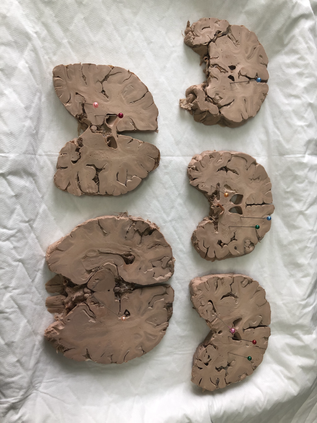Mahidol Science Training
- Renesa

- Jun 26, 2020
- 2 min read
Updated: Mar 17, 2021
CAS learning outcomes
1: Identify own strengths and develop areas for growth
2: Demonstrate that challenges have been undertaken, developing new skills in the processs
4: Show commitment to and perseverance in CAS experiences
6: Demonstrate engagement with issues of global significance
I attended the student science training program at Mahidol University, Institute of molecular biosciences on July 13 - 24. During this two week period I attended many lectures by Professors who were conducting their research on topics such as Alzheimers, Parkinson’s disease, CRISPR genome editing, thalassemia, and fluorescent protein technology. In each of the lectures I also got a chance to get hands on work experience by doing things such as agarose gel electrophoresis, polymerase chain reaction, SDS page, column chromatography, liver cell culture and using fluorescent protein technology to edit yeast DNA.
Throughout the program I was very fascinated by the different techniques taught and its implications on medicine, for example, it was very interesting to learn that the simple technique of gel electrophoresis could be used to detect cases of Alzheimers or Thalassemia. It was also fascinating to learn about the implications of techniques such as PCR in many fields, including forensics and medical diagnosis. I also discovered more about myself by realizing that I liked some areas of research better than others, since I developed a huge interest in the methods used for early detection of Parkinsons and Alzheimers disease.
I really enjoyed this program because I have always been interested in the sciences, especially when it concerns human biology. After attending this program I realized that science was my area of strength, and that I also improved my research skills by using the techniques mentioned above to find solutions to world problems. I was very committed to doing my best in this two week program, even though sometimes it was difficult to learn things that I have never heard of before in such detail, such as Thalasemia. But in the end I was very glad that I put in the effort because I now realize the global significance of what I have learnt. I realized that these small techniques can be used to find a cure to treat many patients with Alzheimers and Thalassemia. I also realized that by using these techniques to diagnose diseases early, thousands of lives can be saved.
Now that the training program is finished, I am considering going back to the institute of molecular biosciences as an intern to help out a professor doing research on early diagnosis on Parkinsons. I also talked to several other professors and brainstormed ideas for projects which I can carry out on my own while using the techniques learnt.















Comments